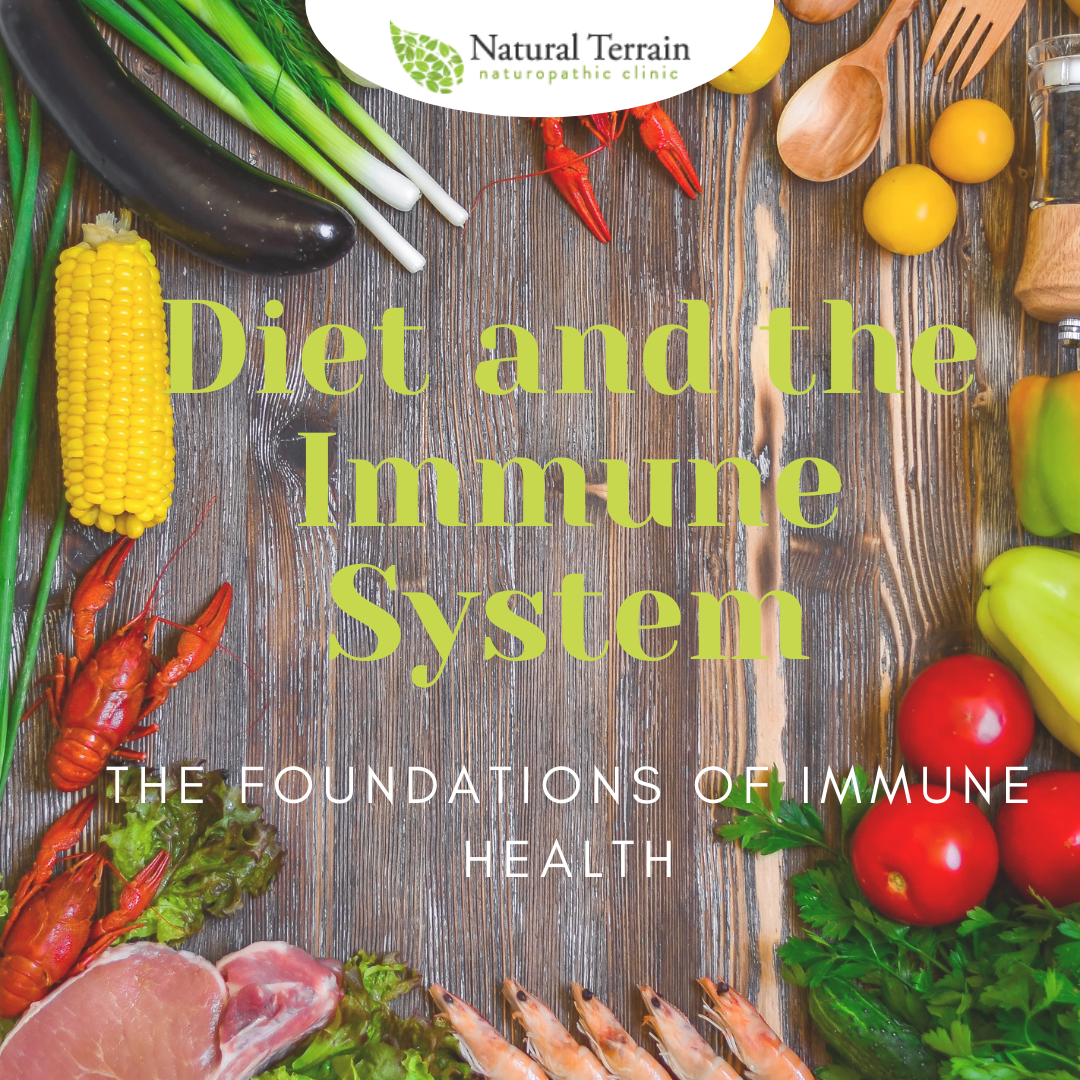As a family with two naturopathic doctors, we love to explore new recipes, especially ones that have added immune benefits. We found this recipe from Rebecca Lindamood at Foodie with Family and have been taking a shot of it daily to prevent illness.
What is Fire Cider?
Fire Cider is a concentrated liquid mixture of different herbs and foods. It is beneficial to the immune system and is traditionally used for the prevention of different illnesses such as colds and flu’s and viral infections.
What are the benefits of fire cider?
Fire cider has a number of different herbs that are beneficial to your health. When herbs are used in combination, they can enhance the benefit of others in the mixture. This is called a synergistic effect.
Several of the herbs in this recipe, such as ginger, turmeric, onion, orange, rosemary, parsley and lemon are both anti-oxidant and anti-inflammatory. Anti-oxidants help to promote healthy cells, including immune cells, and anti-inflammatories help to reduce underlying inflammation in the body which can lead to an increased risk of illness.
Garlic and horseradish are great anti-microbials meaning they help to fight off bacteria, viruses and even fungal infections. Horseradish is traditionally used for sinus issues. Garlic has added benefits of helping control blood pressure and cholesterol levels.
The spicy habanero pepper increases circulation which can help the immune cells get to a site of infection faster.
Thyme is antimicrobial, but it is also great at helping to reduce the amount of coughing and helping to remove any phlegm from the lungs.
Apple cider vinegar is a great digestive aid.
Honey helps to soothe inflamed tissue and helps to add a little sweetness to this recipe.
Recipe
Taken from: https://www.foodiewithfamily.com/fire-cider-health-tonic-and-homeopathic-remedy/
Ingredients:
| · 1 large horseradish root scrubbed very well, ~7” long
· 1 large ginger root ~7” long · 1 large onion root and stem end removed & peeled · 1 large orange do NOT peel. Use the whole fruit. · 1 lemon do NOT peel. Use the whole fruit. · 16 cloves of garlic peeled · 2-4 habanero peppers stems removed |
· 1 tablespoon ground turmeric
· 2 tbsp rosemary leaves (optional) · ¼ cup parsley (optional) · 2 tbsp thyme (optional) · 1 tsp black peppercorns (optional) · raw apple cider vinegar · raw honey |
Instructions:
- In a well-ventilated area, grate the horseradish and ginger roots.
- Roughly chop the peeled onions and garlic, whole oranges, lemons, and habaneros. Keep the peels on the lemons and oranges!
- Add these prepared ingredients into a large container that has a lid, such as a large mason jar.
- Sprinkle turmeric into the container.
- Slowly, pour the raw apple cider vinegar in allowing it to settle in through the crevices and adding more so the contents are fully submerged.
- Lay a piece of parchment paper over the rim of the jar, then screw the lid tightly in place.
- Let the mixture sit in a dark, cool place, allowing it to infuse, for 4 weeks, shaking once daily when you remember it.
- Replace the parchment paper once weekly to prevent rusting of the mason jar lid.
- After 4 weeks, pour the contents into a muslin or cheesecloth-lined colander over a stable pot. Let it drain for 30 minutes, then gather the corners and twist to wring out as much goodness as possible.
- Add approximately 1/4 cup of raw honey to the liquid to taste and pour into a sterilized wine bottle or canning jar. Store in a cool, dark place for up to a year, shaking well before using.
How much fire cider vinegar should I have?
For most individuals, the recommended dose is 1 tbsp per day in the morning. You can also try adding the vinegar to salad dressings and on top of cooked vegetables.


 Vegetables are dense in nutrients. They can help provide your body with different vitamins and minerals. Fruits and vegetables have antioxidant properties which help to reduce damage to our cells and optimize the immune system. Almost all vegetables and fruit have benefits to the immune system. Some examples of particularly great immune supporting fruits and vegetables are; berries, spinach, citrus fruits such as oranges, grapefruits, lemons and limes and cruciferous vegetables, such as broccoli, cauliflower, Brussel sprouts, cabbage and arugula.
Vegetables are dense in nutrients. They can help provide your body with different vitamins and minerals. Fruits and vegetables have antioxidant properties which help to reduce damage to our cells and optimize the immune system. Almost all vegetables and fruit have benefits to the immune system. Some examples of particularly great immune supporting fruits and vegetables are; berries, spinach, citrus fruits such as oranges, grapefruits, lemons and limes and cruciferous vegetables, such as broccoli, cauliflower, Brussel sprouts, cabbage and arugula. There are a lot of great spices out that don’t just add a bunch of flavour to your meals, but they also have immune-supporting effects. Garlic has a lot of antimicrobial properties that assists the immune system in preventing you from getting sick. Turmeric is highly anti-inflammatory and is a good antioxidant. Ginger is also good for bringing down the inflammation. These foods will help to improve your immune function. Try adding at least one to every meal.
There are a lot of great spices out that don’t just add a bunch of flavour to your meals, but they also have immune-supporting effects. Garlic has a lot of antimicrobial properties that assists the immune system in preventing you from getting sick. Turmeric is highly anti-inflammatory and is a good antioxidant. Ginger is also good for bringing down the inflammation. These foods will help to improve your immune function. Try adding at least one to every meal.